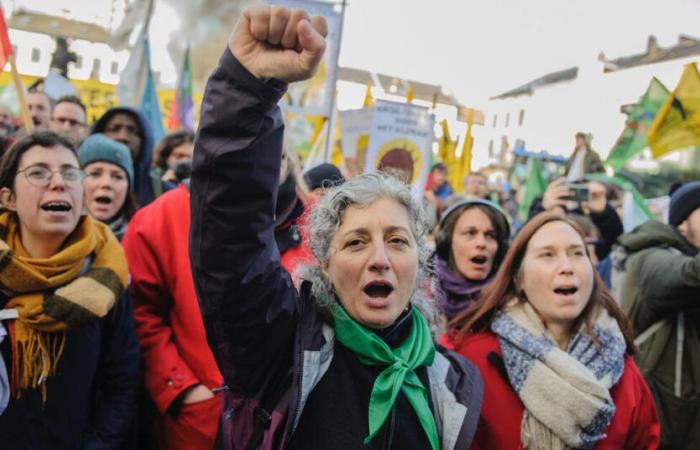ever lower income
In 2022, agricultural incomes in Europe were around 40% lower than the average EU salary. The Belgian agricultural world is characterized by persistent precariousness and difficult working conditions. In Belgium, 20% of Walloon farmers lived below the poverty line in 2024.
The future of European agriculture is at risk with a real problem of taking over farms, often too large and too expensive to be taken over by the new generation. Low agricultural incomes led to the disappearance of around 5 million farms in the EU between 2005 and 2020, mainly small farms. On the other hand, the area of agricultural land has remained stable. This is largely due to the absorption of small farms by larger structures.
REINFORCED INEQUALITIES IN THE NORTH
The situation is further aggravated for women and gender minorities who have to face numerous inequalities, notably the invisibility of their work, an unequal distribution of domestic responsibilities, the over-representation of women in the status of assisting spouses, and the difficulty access to training, land and credit, as revealed in an Oxfam report.
Furthermore, free trade agreements risk worsening the working and living conditions of seasonal immigrant workers in Europe. Already facing precarious and often abusive working conditions, these cheap workers will become even more vulnerable in the face of increased pressure to reduce costs and increase competitiveness. Competition with imports subject to different production conditions is already putting strong pressure on farms, pushing them to resort to subcontracting practices and reduce costs, which directly affects seasonal workers. ·era·s. How far will this destructive logic go?
If nothing changes, we risk seeing an increasing precariousness of the entire sector, leaving farmers and agricultural workers to pay the high price of a free trade system that offers them no protection.
an even more critical situation for southern countries
The situation is even more difficult for farmers in the countries of the South who supply the European market. In Ivory Coast and Ghana, where a large part of European cocoa is produced, up to 58% of farmers live below the extreme poverty line defined by the World Bank, and 90% do not reach a decent income. This trend is even more pronounced among women, who form the majority of agricultural workers in these regions.
In general, farmers are exposed to price volatility in global markets, abuses and human rights violations, while being the most affected by the effects of the climate crisis. Droughts, floods and land degradation threaten agricultural systems and food security, while public support remains limited or non-existent in some countries.
act for fair prices
As FUGEA recalls in its press release, ensuring fair prices for farmers was the main demand of the agricultural mobilizations at the start of the year.
The President of the European Commission, Ursula Von Der Leyen, herself declared before the European Parliament last July: “I will ensure that farmers receive a fair income. No one should be forced to sell good food products at prices below production costs.”
The promise to prohibit the purchase of products at a price lower than the cost of production was also present in the mission letter of the new Commissioner for Agriculture Christophe Hansen.
Several member states such as Belgium, Spain and France have already legislated in this direction. To keep their commitments, EU institutions must guarantee fair prices and conditions for the agricultural world instead of promoting free trade. As ECVC demands in its press release, prices paid to farmers must systematically cover production costs and the CAP must support the transition towards sustainable agricultural systems, which would allow the agricultural sector to adopt agroecological practices and contribute to maintaining biodiversity. Oxfam is calling for the EU Unfair Trading Directive to be revised to include a ban on purchasing at prices below the sustainable cost of production, mandatory for all member states.






